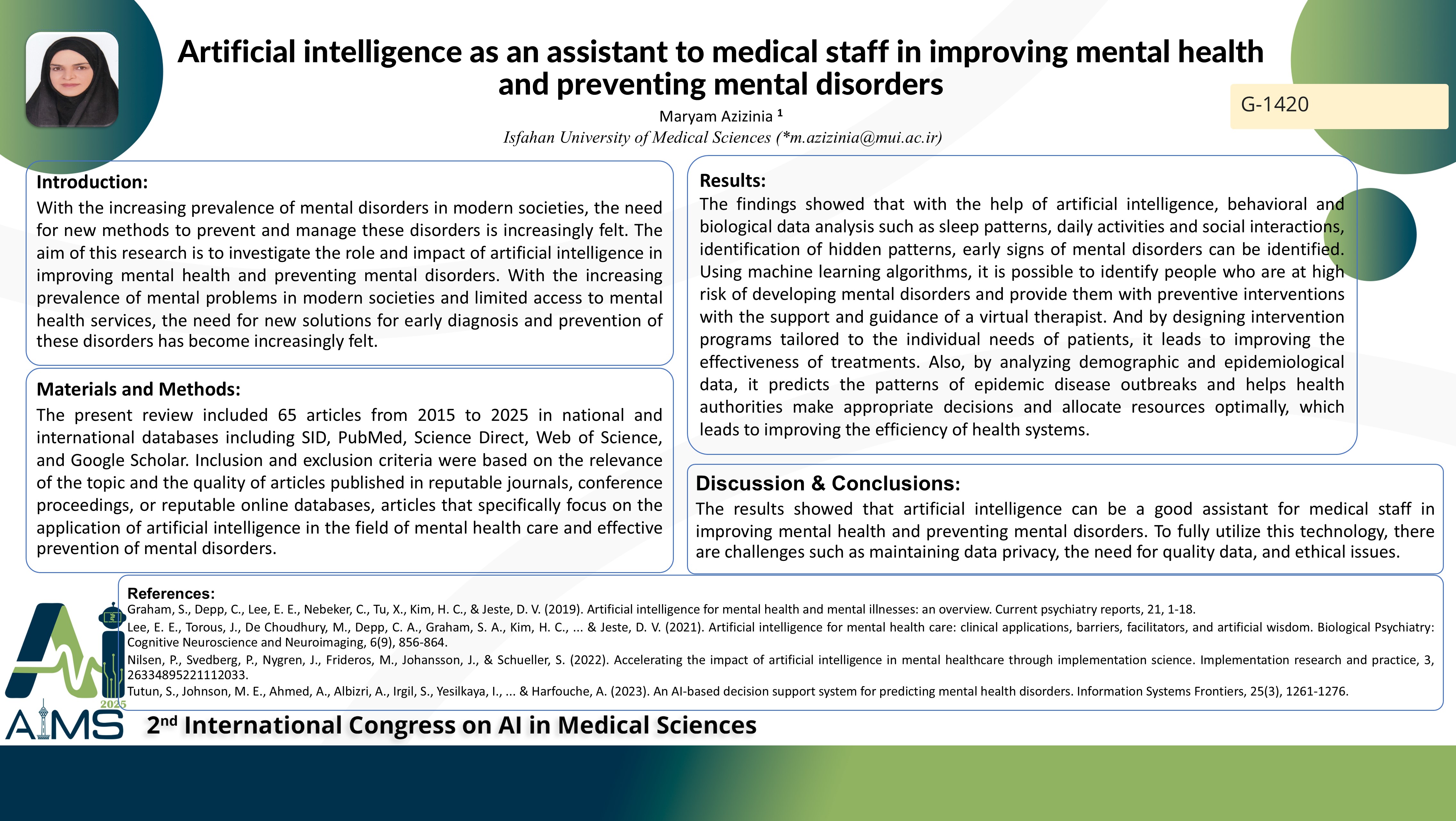Artificial intelligence as an assistant to medical staff in improving mental health and preventing mental disorders
Code: G-1420
Authors: Maryam Azizinia * ℗
Schedule: Not Scheduled!
Tag: Clinical Decision Support System
Download: Download Poster
Abstract:
Abstract
Background and aims: With the increasing prevalence of mental disorders in modern societies, the need for new methods to prevent and manage these disorders is increasingly felt. This research aims to investigate the role and impact of artificial intelligence in improving mental health and preventing mental disorders. With the increasing prevalence of mental problems in modern societies and limited access to mental health services, the need for new solutions for early diagnosis and prevention of these disorders has become increasingly felt. Method: The present review study included 65 articles from 2015 to 2025 in national and international databases including SID, PubMed, Science Direct, Web of Science, and Google Scholar. Inclusion and exclusion criteria were based on the relevance of the topic and the quality of articles published in reputable journals, conference proceedings, or reputable online databases, articles that specifically focus on the application of artificial intelligence in the field of mental health care, and review articles that provide an overview, analysis, or synthesis of existing literature published in English. Results: The findings showed that with the help of artificial intelligence, behavioral and biological data analysis such as sleep patterns, daily activities, and social interactions, and identification of hidden patterns, early signs of mental disorders can be identified. Using machine learning algorithms, it is possible to identify people who are at high risk of developing mental disorders and provide them with preventive interventions with the support and guidance of a virtual therapist. Designing intervention programs tailored to the individual needs of patients leads to improving the effectiveness of treatments. Also, by analyzing demographic and epidemiological data, it predicts the patterns of epidemic disease outbreaks and helps health authorities make appropriate decisions and allocate resources optimally, which leads to improving the efficiency of health systems. Conclusion: The results showed that artificial intelligence can be a good assistant for medical staff in improving mental health and preventing mental disorders. To fully utilize this technology, there are challenges such as maintaining data privacy, the need for quality data, and ethical issues.
Keywords
Artificial Intelligence, Healthcare Assistant, Mental Health
